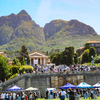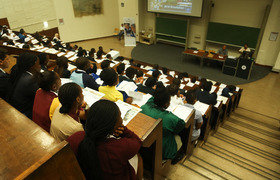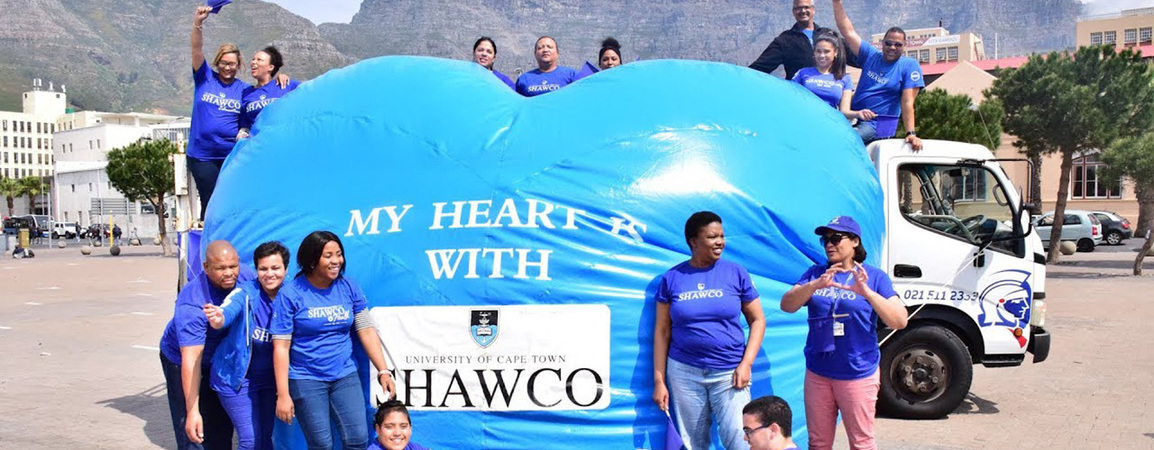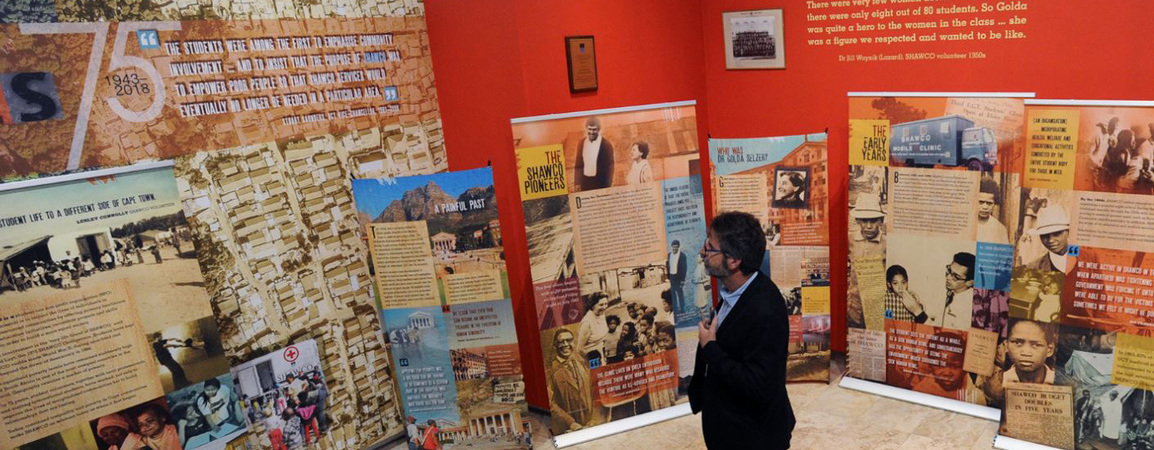UCT adds Khoekhoegowab to its language courses
23 May 2019 | Story Helen Swingler. Photos Brenton Geach. Read time 5 min.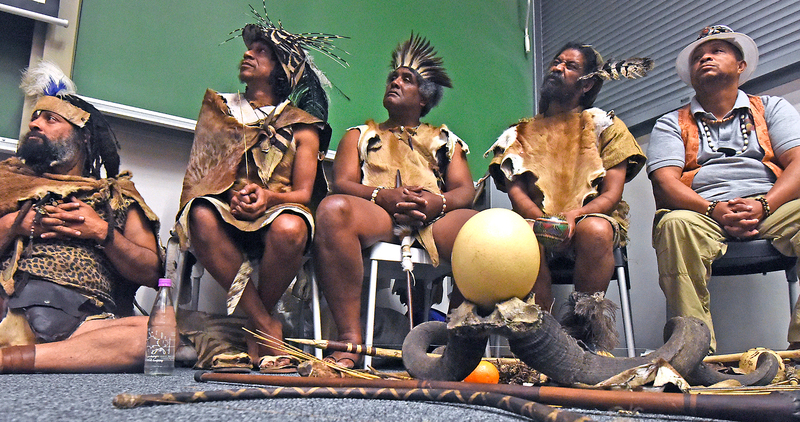
The University of Cape Town (UCT) will offer a short course on Khoekhoegowab, the indigenous Khoisan language, through its Centre for Extra-Mural Studies (EMS).
The first course runs from May to August, said Professor Mbulungeni Madiba, coordinator of UCT’s Multilingualism Education Project (MEP) in the Centre for Higher Education Development (CHED). The project fosters multilingualism on UCT’s campuses.
The bigger plan is for Khoekhoegowab to become a fourth language at UCT, said EMS director Dr Medee Rall. Partners in this initiative are African Studies’ Dr June Bam-Hutchinson and the/Xarra forum’s Language Commission. (A news story with further details on this project will follow at a later date.)
The announcement was made at CHED’s Africa Day celebration on 21 May, which also marked the United Nations International Year of Indigenous Languages. The event was part of a university-wide Africa Month series of lectures, seminars and panel discussions.
Madiba said MEP’s introduction of short courses in isiXhosa, and latterly Afrikaans, has taken off among the UCT community of staff and students.
“We cannot celebrate things that are African without celebrating the languages. One-third of the world’s 6 000 languages are spoken in Africa,” he said at their most recent certificate presentation.
Unfortunately, many of the continent’s indigenous languages, such as the Khoisan’s Khoekhoegowab, spoken by the Nama, Damara and Haiǁom ethnic groups, are endangered. Colonialism is one of the main causes of this decimation, said one of the CHED event’s two speakers, Khoisan heritage activist Bradley van Sitters.
Van Sittersʼs presentation followed that of another researcher in the field, retired University of Namibia scholar Professor Wilfrid Haacke, a Khoekhoegowab language expert and also a UCT alumnus.
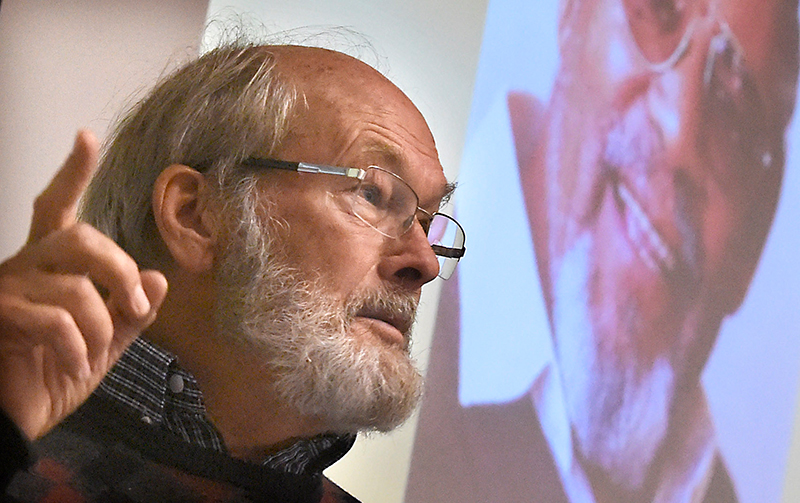
Kindling a language
Today there are about 167 000 speakers of Khoekhoegowab. Roughly 39% are Nama and 60% are Damara, said Haacke.
He has been instrumental in efforts to preserve the language through various orthographies, or conventions for writing the language, dictionaries and glossaries (two-way with English or Afrikaans), compiled with Pastor Eliphas Eiseb.
He has also worked with another prominent academic in this area, University of Namibia scholar Dr Levi Namaseb. The dictionary database has some 24 500 entries, later distilled into a glossary in 1999 and 2000.
Van Sitters said that the different names given to Africa, its settlements, rivers and natural features – and even its people – has a multi-layered history that reflects the different indigenous languages spoken through time, many now lost and others on the brink of extinction.
“Imagine being the only one [left] to speak a language?”
“Imagine being the only one [left] to speak a language?”
Journey of discovery
He is often referred to as the “Walking Man”. As a younger man he left his home in Cape Town with his friend’s passport and crossed the !Gariep River into Namibia to find his Khoisan ancestors.
He is now a Khoisan language and heritage activist (“It’s Cool to be Khoi”), visiting communities and schools north and south of the !Gariep River where Khoekhoegowab is still in use.
As part of his campaign to “decolonise the tongue and the mind”, Van Sitters is also taking the language onto the Cape Flats, to communities such as Lavender Hill.
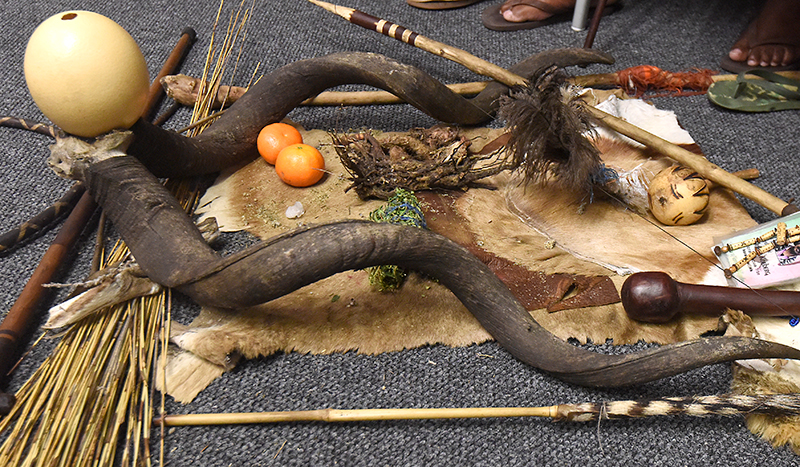
Referring to the lost names of Africa, he said the colonial ships that had reached the Cape shores centuries ago had been like missiles, creating craters of impact that still ripple outwards in language and culture today.
“The indigenous languages and knowledge were destroyed. The language that was once spoken here is no longer spoken … Before this place,” he said, referring to CHED’s headquarters in the Huri‡oaxa building, “there were people living here.”
- For more information on UCT’s new short course, contact Dr Medee Rall, Director: Centre for Extra-Mural Studies, telephone 021 650 2885, email medee.rall@uct.ac.za.
 This work is licensed under a Creative Commons Attribution-NoDerivatives 4.0 International License.
This work is licensed under a Creative Commons Attribution-NoDerivatives 4.0 International License.
Please view the republishing articles page for more information.
Students’ Health and Welfare Centres Organisation (SHAWCO)
The Students' Health and Welfare Centres Organisation (SHAWCO) runs various health and education programmes. Approximately 2 000 UCT students are involved.
The community partnership and social entrepreneurship programmes, that address inequality, are managed by 32 full-time and 5 part-time professional staff.
Operating in the Western and Eastern Cape, the health programme provides primary healthcare to 5 000 adults and children (annually) close to their homes, with fully equipped mobile clinics.
The education programme gives academic support and homework assistance to 1 300 learners weekly with structured education projects that help improve the academic ability of learners.




